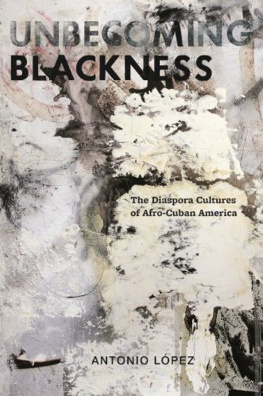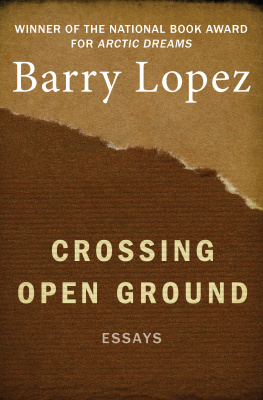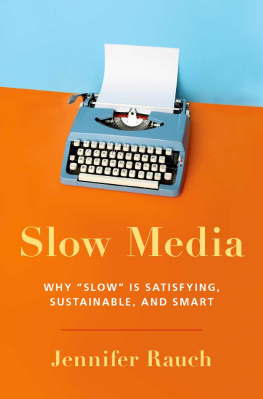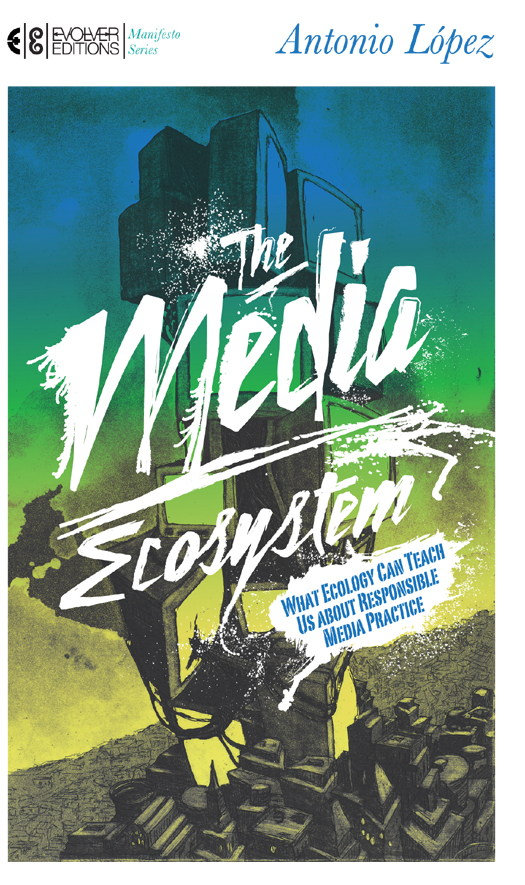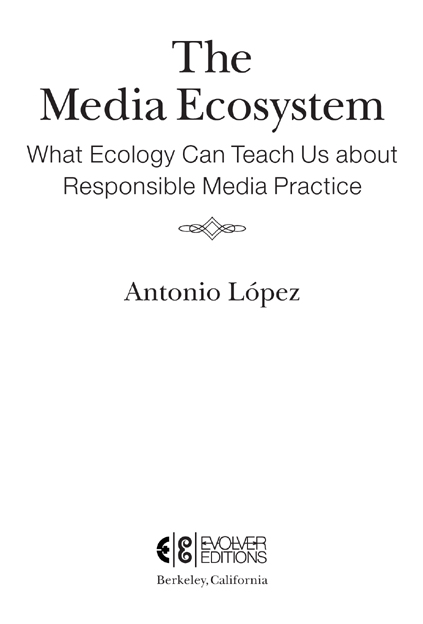Antonio Lopez - The Media Ecosystem: What Ecology Can Teach Us about Responsible Media Practice
Here you can read online Antonio Lopez - The Media Ecosystem: What Ecology Can Teach Us about Responsible Media Practice full text of the book (entire story) in english for free. Download pdf and epub, get meaning, cover and reviews about this ebook. year: 2012, publisher: North Atlantic Books, genre: Romance novel. Description of the work, (preface) as well as reviews are available. Best literature library LitArk.com created for fans of good reading and offers a wide selection of genres:
Romance novel
Science fiction
Adventure
Detective
Science
History
Home and family
Prose
Art
Politics
Computer
Non-fiction
Religion
Business
Children
Humor
Choose a favorite category and find really read worthwhile books. Enjoy immersion in the world of imagination, feel the emotions of the characters or learn something new for yourself, make an fascinating discovery.

- Book:The Media Ecosystem: What Ecology Can Teach Us about Responsible Media Practice
- Author:
- Publisher:North Atlantic Books
- Genre:
- Year:2012
- Rating:3 / 5
- Favourites:Add to favourites
- Your mark:
The Media Ecosystem: What Ecology Can Teach Us about Responsible Media Practice: summary, description and annotation
We offer to read an annotation, description, summary or preface (depends on what the author of the book "The Media Ecosystem: What Ecology Can Teach Us about Responsible Media Practice" wrote himself). If you haven't found the necessary information about the book — write in the comments, we will try to find it.
In The Media Ecosystem, Antonio Lopez draws together the seemingly disparate realms of ecology and media studies to present a fresh and provocative interpretation of the current state of the mass mediaand its potential future. Lopez explores the connections between media and the environment, arguing that just as the worlds powers have seized and exploited the physical territories and natural resources of the earth, so, too, have they colonized the cultural commonsthe space of ideas that everyone shares. He identifies the root of the problem in the privileging of mechanistic thinking over ecological intelligence, which recognizes that people live in a relationship with every other living thing on the planet.
In order to create a more sustainable media ecosystemjust like the preservation of organic ecosystemswe must reconnect our daily media activities to their impact on others and the environment. To become organic media practitioners, we must become aware of the impact of media use on the environment; recognize medias influence on our perception of time, space, and place; understand medias interdependence with the global economy; be conscious of medias interaction with cultural beliefs; and develop an ethical framework in order to act upon these understandings. Above all, Lopez calls for media producers and consumers alike to bring a sense of ritual and collaboration back to the process of communication, utilizing collective intelligence and supporting a new culture of participation. Containing both wide-reaching analysis and practical tips for more conscious media use, The Media Ecosystem is designed for all those who seek a more sustainable future.
The Media Ecosystem is part of the EVOLVER EDITIONS Manifesto Series.
Antonio Lopez: author's other books
Who wrote The Media Ecosystem: What Ecology Can Teach Us about Responsible Media Practice? Find out the surname, the name of the author of the book and a list of all author's works by series.

